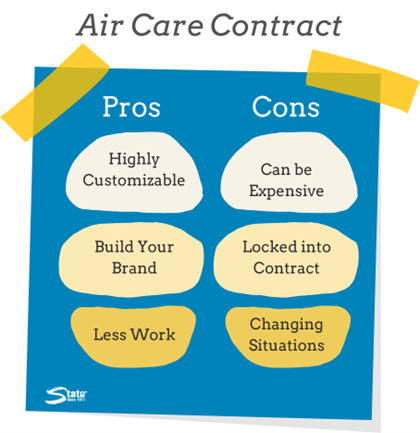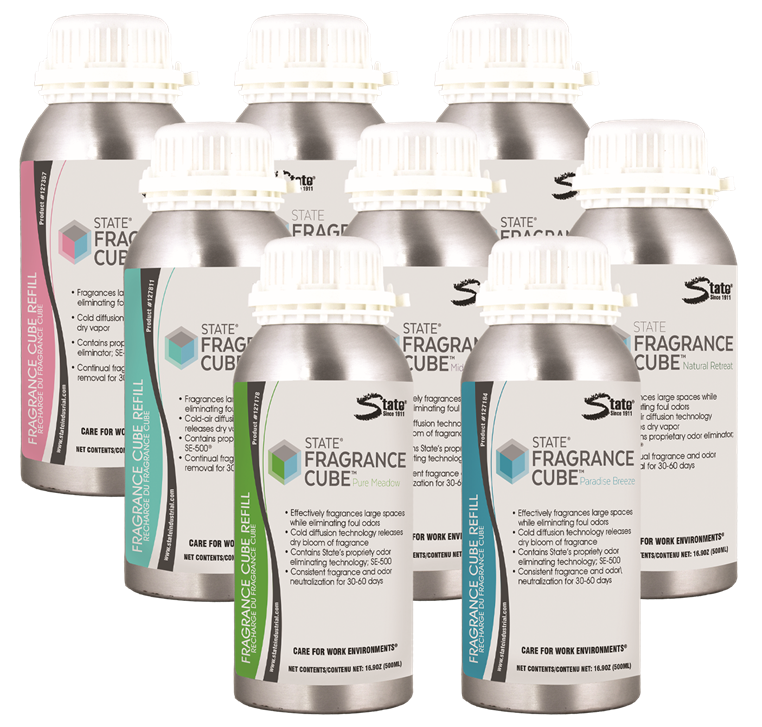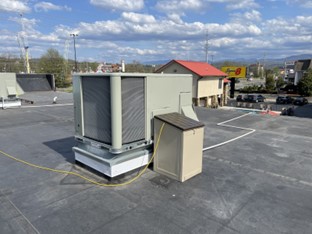Pros and Cons of Air Care Agreements
Pros and Cons of Air Care Agreements
A fresh-smelling business is a more successful business. But putting this pleasant aroma on a contract can be a bit stress-inducing. How do you know you’re going to like it? What if it isn’t worth it? Will you still want to be on a contract six months from now?
State Chemical manufactures and distributes hundreds of different chemical solutions, including fragrances and fragrance systems. We know that air care agreements create concern as well as curiosity, and it can be hard to justify a yearlong agreement just for a pleasant-scented facility.
To address your concerns, we’ve compared the pros and cons of air care agreements. After reading, you’ll know whether a contract is right for your facility’s situation.
Pro: Air Care Agreements are Highly Customizable
One of the main benefits of being on an air care agreement is that it’s highly customizable to your needs.
For example, air care agreements can be manipulated to accommodate tighter budgets. If you’re looking for a fragrance system but have little wiggle room on the price, an air care agreement can be written to account for less product usage.
You’ll typically switch your fragrance system to a fresh scent once a month. However, to save money or to maximize scent longevity, you could run your fragrance system for half the time, and it’ll only need to be changed bi-monthly instead.
Similarly, air care agreements are customizable as far as system used, space covered, scents diffused, and fragrance diffusion times. When you have a wide-scale system, you can fragrance your facility whenever, wherever, and however you like.
Con: Air Care Agreements Can be Expensive
This being said, a common concern about air care agreements is that they are expensive. Prices vary depending on what company you use, but typically, getting set up with the equipment will cost $100–$2,000.
For some, the value of a pleasant fragrance is worth this expense—especially in businesses where malodors are severe. However, if you have a limited budget or don’t have serious odor concerns, an air care agreement isn’t for you. Instead, it may be more beneficial to consider occasional-use products, such as handheld air fresheners.
Pro: Fragrance Systems Help Build Your Brand
Another important factor to consider is your brand image. Do you want to convey a clean, professional environment? Maybe a warm, welcoming atmosphere? How about a modern, luxurious ambience?
With consistent fragrance, you have the opportunity to further build your brand persona. One of the strongest triggers of memory is scent, and when you give your facility a distinct, pleasant aroma, you plant the seeds of positive memories in your clients’ minds.
This is certainly possible without an air care agreement too. You may be thinking that you’d rather just go to the store, buy a few cans of Febreze, and call it a day.
However, it’s harder to maintain consistency without a contracted system. When your fragrance system is on an agreement, your brand fragrance will be regularly and evenly diffused throughout your facility. You’ll receive refills when your system runs out. It’ll become a part of the atmosphere—something that customers grow to expect and rely on.
Mistakes are more easily made when you use an aerosol product or something else you must manage. You might miss an area, leaving it smelling weaker than the others. You might forget to employ your fragrance one day. You might run out of product suddenly, meaning you now have to spend time driving out to the store to get more before clients arrive.
All in all, it can create a lot of work and room for error, whereas contracted fragrance systems don’t have these problems.
Con: Being Locked into an Air Care Agreement isn’t Always Feasible
As helpful as an air care agreement can be for a busy facility that values brand consistency, sometimes, air care agreements just aren’t feasible.
You could be in a situation where you don’t know what your budget will be six months from now, so why would you enter a yearlong contract?
Or maybe your business isn’t large enough to warrant an air care agreement. For example, maybe your facility is a hole-in-the-wall coffee shop that seats no more than twenty at a time. An air care agreement is still a possibility for you, but buying a ready-to-use product like an aerosol might be more cost-efficient and just as effective. Plus, you may not want to compete with the smells of coffee and baked goods.
Every situation is different and so every need is different. If your budget can withstand it and your facility could benefit from a fragrance system, an air care agreement is for you. But if your budget is tight and/or you have other promising options, an air care agreement isn’t the best choice for your facility.
Pro: An Air Care Agreement Means Less Work for You
While considering what an air care agreement can give you, it’s important to recognize that when you’re paying for an air care agreement, you’re also paying for convenience.
With an air care agreement, you’re set up on a computerized system that diffuses fragrance when you want it to, and once installed, it only needs refills about monthly. These refills will either be delivered to your facility or regularly replaced by your service provider (depending on which company you work with).
This is much less maintenance than constantly spraying air fresheners by hand, especially when you don’t have to run out to the store. And if you pick a company that provides service, you won’t have to worry about maintaining the system yourself.
When you’re scrambling for time, trying to fit all necessary tasks into the day, this can be a significant perk of an air care agreement.
Con: Your Situation Can Change Drastically Within a Year
However, we also realize your situation can change significantly within a year. Maybe things seem okay right now, but it’s hard to say where you’ll be after X date.
An air care agreement is the same as any other contract: you’re locked into it, and it can be hard to get out of. This can be a stressful thing. It brings a lot of uncertainties.
If you’re nervous about this, many companies offer trial runs, cancellation periods, and contract cancellations with lowered fees. Even with these ways out, it can be scary to commit when you’re unsure, so you don’t have to. But if you do end up going through with the agreement, you will have options to get out if need be.
Choose Your Fragrance on the Plan that Best Suits You
You want a fresh-smelling facility, but it can be stressful to commit to a contract. Now that you know the benefits and drawbacks of an air care contract, consider what an air care agreement with State Chemical could look like for you.











